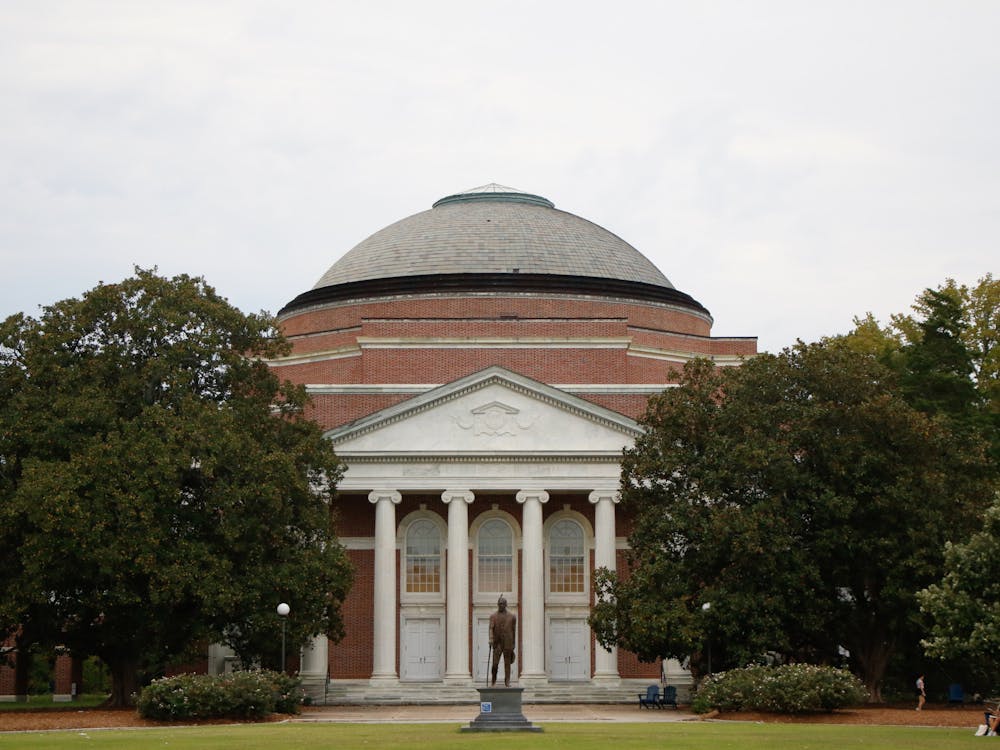Academic advisors are intended to form an essential support network for students, but some first-years have concerns about the program’s effectiveness.
According to Mathavi Strasburger, director of the Academic Advising Center, around 50 advisors will be leaving the program next year, and 17 advisors have already confirmed their departure.
Under Trinity’s academic advising program, first-year students are matched with an advisor from when they first matriculate to Duke until they declare their major sophomore year. Advisors counsel students on various academic matters, including course selection and co-curricular activities.
“What we hope is that we’re able to enable and build a relationship between the student and their advisor,” said Mathavi Strasburger, director of the Academic Advising Center.
However, several first-year students have reported that they do not feel adequately supported by their advisor as they transition into Duke.
“My academic advisor can certainly be helpful if I have questions, but we don’t have a super close relationship,” first-year Alaska Fairbanks said. “We don’t talk that much on the day-to-day and only check in at the beginning of the semester.”
According to Strasburger, advisors must meet with their students at least twice throughout the school year, once at the beginning of the first semester and once in the second semester before course registration. Ideally, academic advisors and first-year students should meet as often as possible.
Advisors are reminded to contact their advisees in monthly newsletters, but the frequency in which the two meet varies by advisor.
“I think it could be good to have checkpoints at times besides just class registration,” Fairbanks said.
First-year Christina Zhang agreed that enforcing more consistent communication would be more beneficial than only at designated checkpoints throughout the year.
Trinity’s academic advising program operates on a volunteer basis, with more than 300 faculty and staff members from across Duke serving as pre-major advisors to first-year and sophomores students. Since each advisor specializes in a specific area of study or work, some students worry about receiving advice that is not relevant to their academic path.
“My academic advisor is an affinity group coordinator, so she isn’t actually involved in academics,” first-year Jeter Sison said. “She can’t really speak to how to help me in terms of picking classes, so for a lot of the issues I come to her about, she just redirects me to an academic dean or tells me to ask my professors.”
First-year Layla Axam believes that upperclassmen are just as knowledgeable, if not more knowledgeable than some of the academic advisors on class-related questions.
Strasburger acknowledged that the volunteer model is not well-suited to providing department-specific advice, though she emphasized that each advisor is educated in the general Trinity graduation requirements. New advisor training programs are updated annually with curriculum changes.
Advisors are taught to point students to the appropriate department when they are unable to answer their questions.
“We entrust the discipline-specific advising to those departments,” Strasburger said. “We know that this may not feel very satisfactory. It might feel like, ‘Oh, you’re pointing me in another direction.’ But that’s exactly what we want to do because we want students to get the correct information from the accurate sources.”
Strasburger emphasized that the advising network expands beyond pre-major academic advisors. Other entities like the academic advising center offer drop-in advising, and academic deans can provide guidance for first-years.
High turnover rates of faculty advisors are also an issue for the program. The volunteer model, which has been in place since the 1980s, can do little to stop advisors from leaving when faced with shifting circumstances, including changes in their full-time roles.
Around 30 to 40 advisors leave the program each year, according to Strasburger. Some advisors also leave in the middle of the school year.
“We know that life happens for a lot of people,” Strasburger said. “There are a lot of things that factor into an individual’s decision to step away from college advising and, while we honor and respect that, we also ask why to see if there are things we can do to mitigate issues.”
When advisors leave, the academic advising center works to reassign their former advisees to another advisor. Strasburger empathizes with the frustration many students experience with the reassignment process.
“We try to figure out as we recruit how we can ensure a person's longevity in the role and provide the resources towards that end,” she said.
The Arts & Sciences Council will vote on the new Trinity curriculum in April. At that point, Strasburger and her team will revise their advising strategies to address the new educational philosophy. The team continuously updates their advisor training in response to student feedback from pre-major advising satisfaction surveys.
“Our continued goal is trying to figure out how to continue to support the students,” Strasburger said.
Get The Chronicle straight to your inbox
Signup for our weekly newsletter. Cancel at any time.
Kate Haver is a Trinity sophomore and a university news editor of The Chronicle's 120th volume.

